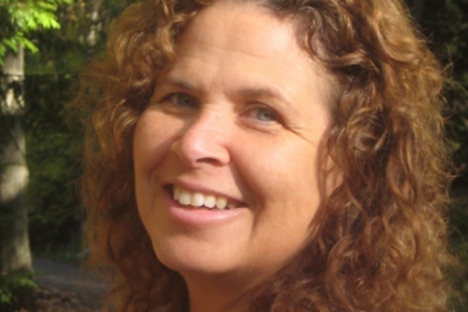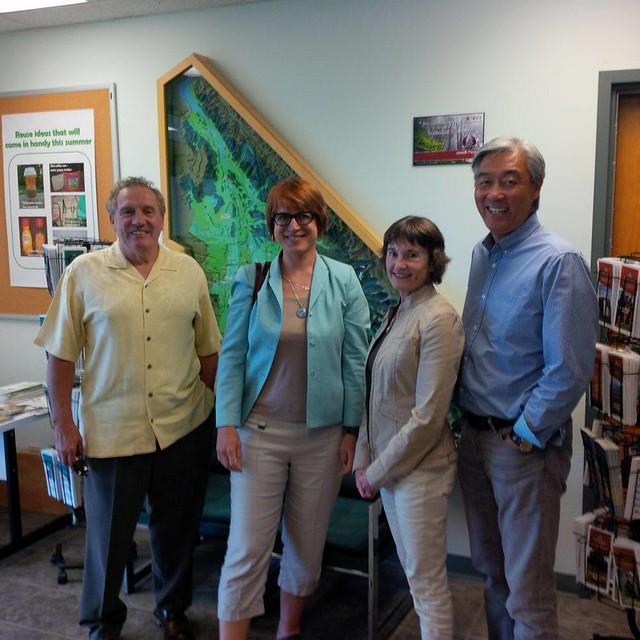Last weekend, ministers from 195 countries agreed to aggressively curb their greenhouse gas emissions in order to slow the effects of climate change. Delegates agreed to targets that will stop global warming at 2°C (with a preference for stopping at 1.5°C.)
During the Paris talks, cities were recognized as local champions for climate action. C40, a network of global cities, recognized Vancouver with a C40 Award for its Greenest City Action Plan.
At the Real Estate Foundation of BC, we know that communities of all sizes have a role to play in shaping a sustainable future for our province. That’s why we’ve identified the built environment as a priority area for research and grant-making. When we say “built environment,” we mean: community planning, land use, homes, buildings, infrastructure, roads, and public transit.
Earlier this year, we hired MODUS, a community planning and engagement firm, to conduct research on the state of the built environment in British Columbia.
We found that, while progress is being made, it isn’t always being measured or supported and that more work is needed to create public policies and financial regulations that encourage sustainable practices. In Canada, communities account for 60 per cent of the energy used[1] and more than half of all greenhouse gas emissions.
Using our research and the results of a public opinion poll that we commissioned, we made ten recommendations to the Provincial government for BC’s Climate Leadership Plan.
Our recommendations included:
- Choosing transit-oriented development. Ultimately, we know that sustainable communities are complete, compact and efficient. By planning for a mix of land uses (workplaces, housing, shopping) in close proximity to each other, local governments can build communities that are walkable and encourage the use of public or active transportation (walking, cycling) over driving. We can accomplish this by building mixed-use and multifamily buildings, encouraging infill development and supporting high-quality public and regional transit options.
- Enabling stronger regional planning. Energy and sustainability planning in BC has often been done in a segmented way, with local governments, jurisdictions and sectors acting separately. Regional Growth Strategies are an opportunity to integrate community sustainability planning and targets into regional and municipal plans.
- Setting goals and codes for low-energy buildings. The buildings we live, work and shop in are responsible for nearly half of a community’s greenhouse gas emissions. BC communities will need to significantly improve the efficiency of new and existing buildings, and shift the energy demand to low-carbon sources. While higher performance requirements have been included in the most recent BC Building Code update, models show that energy use in most buildings could be reduced much more with deeper efficiency measures.
- Supporting building and community energy and emissions data collection, monitoring and disclosure. Reporting, monitoring and labeling on energy use would help all sectors to gauge their progress and make smart decisions. Strong data can also assist governments in implementing carbon and energy pricing that guides consumers towards more sustainable decisions.
To read the rest of our recommendations, download the full submission.
In the next weeks, we’ll be releasing the results of a public opinion poll that we commissioned to learn about BC residents’ attitudes regarding sustainability in the built environment. We’ll also be exploring ways to advance progress in each of these areas through collaboratives or working groups.
[1] See Fraser Basin Council Submission on Climate Leadership Plan Discussion Paper (http://engage.gov.bc.ca/climateleadership/files/2015/12/125_-Fraser-Basin-Council.pdf)
 We are happy to welcome Ramona Faust to REFBC’s Board of Governors. Ramona has been appointed by the Union of BC Municipalities.
We are happy to welcome Ramona Faust to REFBC’s Board of Governors. Ramona has been appointed by the Union of BC Municipalities.  We are pleased to welcome Robert Goertz to the Foundation Board of Governors. Robert is the third Minister of Finance appointee, following recent legislation that expands our board membership to seven.
We are pleased to welcome Robert Goertz to the Foundation Board of Governors. Robert is the third Minister of Finance appointee, following recent legislation that expands our board membership to seven.